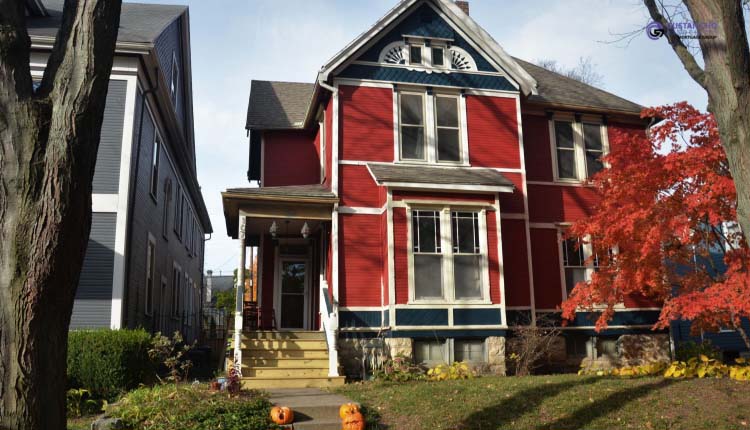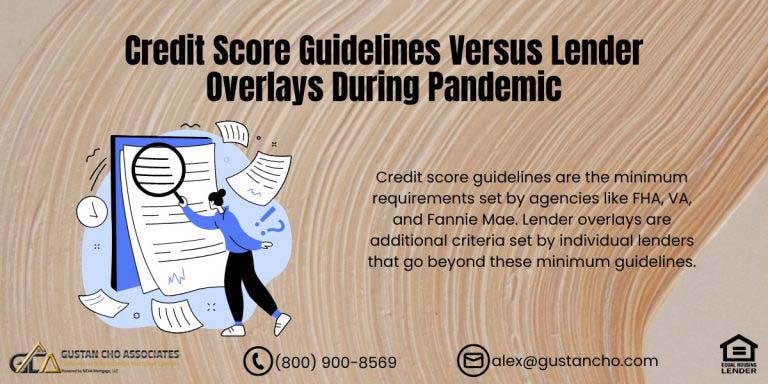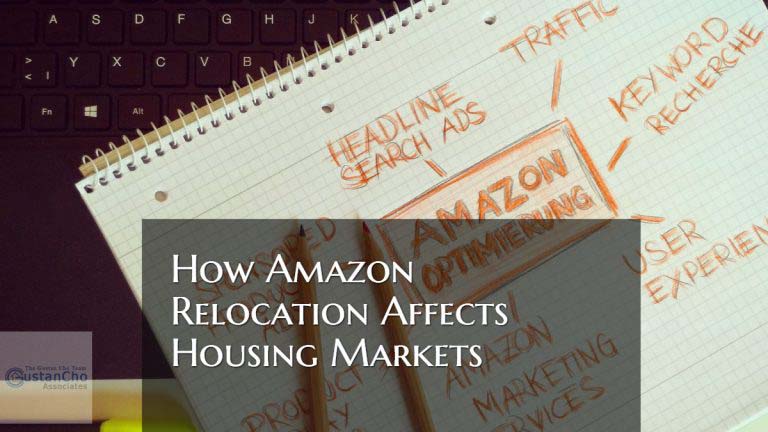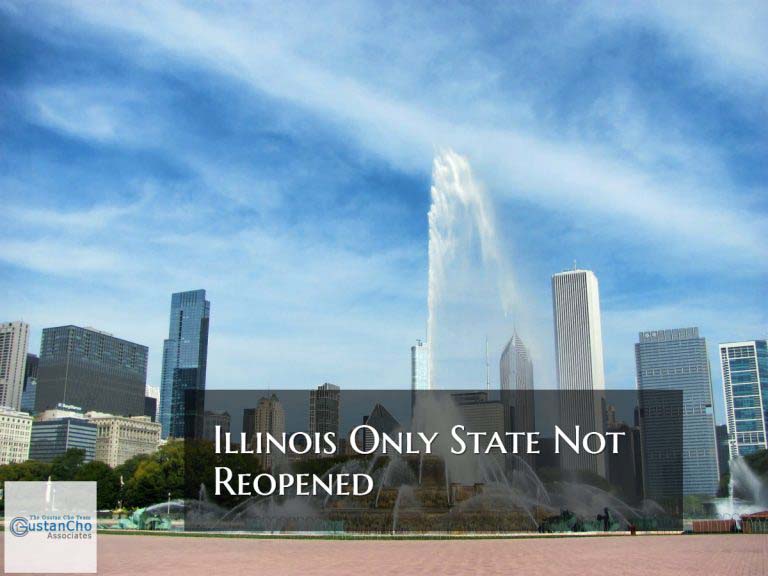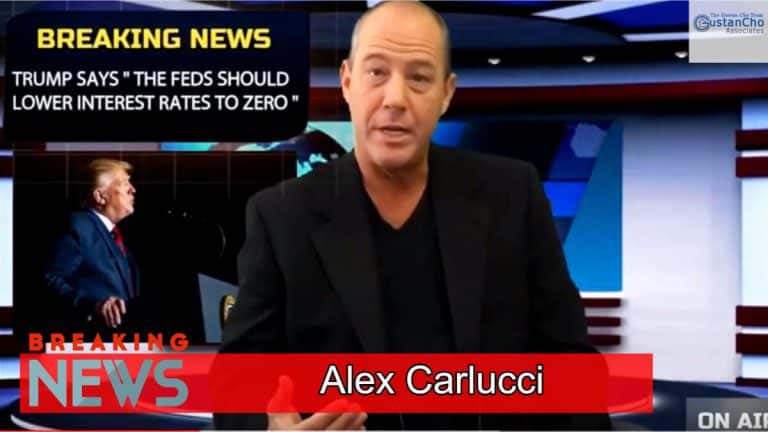You’re late on the mortgage. Stress is real. But you have more options than you think. This plain-English guide shows you how to avoid foreclosure with practical steps that work right now—what to do first, how to talk to your servicer, which workout fits your situation, and how to protect your credit and equity.
We’ll keep it simple, action-oriented, and current. Use this as your checklist to avoid foreclosure even if you’re already 30, 60, or 90+ days past due.
Why This Guide Matters
Foreclosure is a legal process, not a single event. It takes time. Those weeks give you chances to act. Knowing how to avoid foreclosure early helps you keep control, pick the best option, and cut costs. Even small actions—like calling your servicer, opening mail, or sending a one-page hardship letter—can change the outcome.
What is Foreclosure? (and What Triggers It)
- 30 days late: You’re “delinquent.” Late fees start.
- 60 days late: Collections escalate. Loss-mitigation options are still wide open.
- 90+ days late: You’re “seriously delinquent.” Foreclosure steps can begin (timelines vary by state).
- Timeline: Some states require court action (judicial); others don’t (non-judicial). Either way, you have a right to seek help, submit documents, and request a workout.
Key point: The earlier you show a plan, the more ways you can avoid foreclosure.
Call your servicer before you miss a payment
Ask about forbearance, repayment plans, or modifications tailored to your hardship.
The Golden Rule: Communicate Early and Often
Silence is the #1 reason good borrowers lose options. Here’s how to avoid foreclosure with proactive communication:
- Call your servicer and ask for the “loss-mitigation department.”
- State your hardship in one sentence (job cut, medical, divorce, income gap, tenant moved, etc.)
- Ask for options based on your loan type (FHA, VA, USDA, or conventional/GSE).
- Request a complete document list and the submission portal/fax.
- Confirm timelines (deadlines to apply, sale dates, appeal windows).
- Get names and reference numbers; keep a call log.
Being responsive—and documenting it—shows good faith. That alone improves your chances to avoid foreclosure.
Your Fast-Start Checklist (48 hours)
- Open every letter from your servicer, HOA, and county.
- Set up online access to your mortgage account.
- Pull a free credit report to confirm all debts.
- Create a simple budget (income in, bills out).
- Write a one-page hardship letter (who, what, why, when it improves).
- Gather documents (last 2 pay stubs per job, last 2 months’ bank statements, most recent tax return or profit-and-loss if self-employed, ID, mortgage statement, property tax bill, homeowner’s insurance).
- Call a HUD-approved housing counselor for no-cost help.
If a sale date has been posted, also call a local consumer/real-estate attorney. Acting fast is how to avoid foreclosure when time is short.
Know Your Options (and Which One Fits)
There isn’t just one way how to avoid foreclosure. Think of these as tools in a toolbox. The right tool depends on income, equity, credit, loan type, and how late you are.
1) Reinstatement (catch-up and move on)
- What it is: Settle up any overdue payments, late fees, and legal costs all at once.
- Best when: You had a short-term hardship (overtime returns, bonus arrives, tax refund hits, family gift).
- Pro tip: Ask for an itemized reinstatement quote with a good-through date. Fund wired by the deadline can stop a sale.
Why it works: The account becomes current immediately, which is often the fastest path to avoid foreclosure if cash is available.
2) Repayment Plan (Spread the Arrears)
A repayment plan, often referred to as spreading the arrears, involves adding a bit of what you owe onto your monthly payments for a certain amount of time, usually between 3 to 12 months. This option is ideal for individuals who have regained their income but cannot make a lump-sum payment. To ensure the plan’s effectiveness, it’s crucial to select a term that is genuinely affordable, as missing a payment can trigger the process to restart.
3) Payment Deferral / Partial Claim (Move Missed Payments to the Back)
- What it is: Past-due amounts are moved to the end of the loan (or placed in a junior, no-payment lien for FHA), and your regular payment resumes.
- Best when: You’re back on your feet but can’t afford a higher payment.
- Pro tip: Ask whether taxes/insurance advances are included in the deferral math.
4) Loan Modification (Change the Loan to Fit Your Budget)
- What it is: The lender permanently changes terms—rate, term, capitalization of arrears, or (rarely) principal reduction—to create an affordable payment.
- Best when: Income is steady, but the current payment is not.
- How it helps: A mod can reduce payment shock and is one of the most common ways to avoid foreclosure long-term.
5) Refinance to Resolution (if Equity and Credit Allow)
- What it is: You replace your loan, pay off arrears at closing, and lock in a payment that fits.
- Best when: You have equity or a cosigner, and your credit/income still qualify.
- At Gustan Cho Associates, we work off agency guidelines with no overlays and explore mainstream and non-QM paths that can solve sticky files.
6) Forbearance (short-term pause or reduction)
- What it is: Temporary payment relief (pause or lower payment), with a plan afterwards (deferral, repayment, or mod).
- Best when: Hardship is temporary and documented.
- Pro tip: Before you accept forbearance, clarify exactly how you’ll exit it. An exit plan is critical if your goal is to avoid foreclosure.
7) Sell and Protect Equity (When Keeping the Home isn’t Possible)
- What it is: List the home, pay off the loan, and keep your remaining equity.
- Best when: You have equity, and long-term affordability won’t work.
- Why it’s smart: A clean sale beats a forced sale. It can save credit, cash, and stress.
8) Short Sale (Owe More Than the Home is Worth)
- What it is: The lender approves a sale for less than the payoff, forgiving the shortage (terms vary).
- Best when: No equity, but you want to exit without a foreclosure on record.
- Tip: Start early. Short sales require lender approval and complete packages.
9) Deed in Lieu of Foreclosure (Last-Resort Exit)
- What it is: You transfer the deed to the lender to settle the debt (terms vary).
- Best when: A sale failed and a foreclosure is weeks away.
- Credit impact: Better than a completed foreclosure in many cases.
10) Bankruptcy (Legal Stop and Plan)
- What it is: Chapter 13 can stop a sale and create a court-managed repayment plan; Chapter 7 may delay a sale and discharge unsecured debts.
- Best when: You need breathing room or to cure arrears over time under court protection.
- Important: Speak with a bankruptcy attorney—laws and outcomes vary. A bankruptcy attorney can serve as a useful resource to avoid foreclosure when other options are blocked.
Matching the Option to Your Situation (Quick Matrix)
Temporary Setback, Income Back
If you experience a short-term financial challenge but anticipate a return to stable income, implementing a repayment plan can help. This may involve payment deferral or forbearance, allowing you to pause payments temporarily while you regain your financial footing. Refinancing after resolving your financial issues can also be a viable option to adjust your loan terms for better long-term stability.
Payment too high for the long run
When mortgage payments become unsustainable, exploring a loan modification can provide immediate relief by adjusting the loan terms to reduce monthly payments. Alternatively, refinancing to a longer term can also ensure lower payments by extending the repayment period, which can help relieve financial pressure in the long run.
Equity Strong, Can’t Afford Long-Term
If your home has substantial equity but you’re struggling with long-term affordability, a traditional sale may be the best route to protect your equity before it diminishes. This approach allows you to sell your home at a favorable price and use the proceeds to pay off your mortgage, freeing you from financial strain.
Underwater, Sale Price Too Low
For homeowners who owe more on their mortgage than what their home is worth right now, a short sale can be a smart move. In this scenario, the house is sold for less than what’s owed on the mortgage, preventing the financial fallout of foreclosure while allowing the seller to move on without further debt obligations.
Sale Date Soon, Need a Legal Stop
If a foreclosure sale is imminent, consulting a bankruptcy attorney, particularly for Chapter 13 bankruptcy, can provide legal protection and extra time to reorganize your finances. This process allows you to propose a repayment plan to keep your home while addressing your debts, potentially stopping the sale and giving you time to stabilize your financial situation.
Cash Infusion Coming
In cases where a cash infusion is anticipated, such as a bonus or inheritance, pursuing reinstatement of your mortgage can be a practical solution. This option lets you catch up on your mortgage by paying any missed payments and fees. It helps you avoid foreclosure and get back on good terms with your lender.
Choosing fast and acting early is exactly how to avoid foreclosure with the least damage.
Request a mortgage forbearance the right way
Pause or reduce payments temporarily—know terms, extensions, and exit steps
Documents that speed approvals
Lenders and investors care about the ability to pay and paper trails. A tight package is the secret how to avoid foreclosure without delays:
- Hardship letter (one page, plain language)
- Last 30 days of income (or YTD P&L if self-employed)
- Two months of bank statements (all pages)
- Most recent tax return (W-2/1099s)
- Mortgage statement, property tax bill, insurance invoice
- ID and signed disclosures
- Budget (income vs. expenses) showing the proposed payment works
State timelines and why they matter
Every state’s process differs. Judicial states take longer, giving you more time to submit a complete application and avoiding foreclosure with a proper workout. Non-judicial states move faster, so acting in the first 30–60 days is even more critical. Your housing counselor or attorney can explain exact notices, cure periods, and sale posting rules where you live.
How to avoid foreclosure when you’re self-employed
- Keep a current profit-and-loss (even if simple).
- Show business bank statements proving deposits.
- Explain seasonality and why income is stable going forward.
- Consider loan options that look at bank statements to qualify if refinancing is the path.
- Ask your servicer for a mod that reflects variable income.
A clean, believable story—backed by numbers—is how to avoid foreclosure when your income is non-W-2.
Protect Your Credit and Cash While You Work the Plan
- Prioritize housing, utilities, transportation, and food.
- Stop unneeded autopays that risk overdrafts.
- Avoid new credit unless it lowers your total outflow.
- Keep insurance active (home and car). Lapses cause force-placed premiums.
- Save proof of every payment and keep copies of everything you send.
Small, steady wins make a big difference in how to avoid foreclosure and rebuild quickly.
Money moves that can help (and a few to avoid)
Helpful:
Using a tax refund, bonus, or family gift can be a helpful way to fund a reinstatement. Consider exploring rate-credit pricing, where a slightly higher interest rate allows for lender credits that can offset closing costs on a refinance. Additionally, you can free up cash for your financial plan by trimming your budget—this might involve cutting back on subscriptions, dining out, or eliminating unused services.
Use Caution:
It’s important to exercise caution when considering 401(k) loans or hardship withdrawals, as these options come with potential taxes, penalties, and specific rules regarding job loss. Additionally, consolidating high-interest debt may increase overall payments, which can be a financial strain. Similarly, relying on cash advances or taking out new personal loans during stressful times can exacerbate financial difficulties.
Before making major moves, talk to a counselor or experienced loan officer who can help you and understands how to avoid foreclosure without draining your future.
Scams to Avoid (Red Flags)
- Up-front “guarantee to stop foreclosure” fees.
- If someone tells you to stop chatting with your servicer, ignore that.
- Title transfer or “rent-back” schemes.
- Pressure to sign blank documents.
- “Attorney-backed” firms that won’t give bar numbers.
When in doubt, call your servicer and a HUD-approved counselor. Staying in official channels is how to avoid foreclosure safely.
If You have an HOA or Condo Association
HOA/condo dues can trigger their own liens and legal actions, sometimes faster than your mortgage. Keep the association in the loop, seek payment plans, and verify whether your workout includes escrow advances for assessments. Managing HOAs early is how to avoid foreclosure surprises later.
After You Cure the Default: Credit and Stability Playbook
You saved the home—now lock in the win:
- Autopay your mortgage with a cushion.
- Build a one-month reserve (then three).
- If needed, add a secured or low-limit card; keep utilization <10%.
- Calendar property taxes/insurance due dates to avoid escrow shocks.
- If you modified, review your note: step-rate changes, balloon language, or trial-to-permanent steps.
Good habits now mean you won’t need another guide on how to avoid foreclosure down the road.
Apply for a loan modification to lower your payment
Rework rate, term, or arrears to make the mortgage affordable long-term
Sample Hardship Letter (Copy/Paste and Edit)
Subject: Hardship Letter – Loan #_________
Dear Loss-Mitigation Team,
I fell behind on my mortgage due to [brief reason: job loss, hours reduced, medical issue, divorce, tenant vacancy] from [date] to [date]. My income has now stabilized at $______ per month. I can afford a payment of $______ going forward. I am requesting [repayment plan / payment deferral / loan modification / reinstatement quote] so I can keep my home. Attached are my pay stubs/bank statements/tax return/budget. Thank you for reviewing my complete package and helping me avoid foreclosure.
Sincerely,
[Your Name]
[Address | Phone | Email]
A clear letter plus a complete doc set is exactly how to avoid foreclosure with the fastest approval.
Work with a Lender Who Solves, Not Stalls
Many borrowers get stuck because their lender has added rules (“overlays”) that block otherwise eligible solutions. At Gustan Cho Associates, we operate with no overlays on agency loans and offer creative but compliant options—so you can refinance, reset, or plan a purchase after you stabilize. Knowing every path is how to avoid foreclosure today and prevent repeats tomorrow.
One-page action Plan (Print This)
- Call your servicer’s loss-mitigation team today.
- Write your hardship letter and gather documents.
- Submit a complete workout package via the official portal.
- Ask for confirmation and a response timeline in writing.
- If you have equity but not affordability, list the home now.
- Call a local attorney and a HUD counselor if a sale date is set.
- Explore refinance and modification options with a team that knows how to avoid foreclosure.
- Pick the path, follow through, and confirm your account is current in writing.
Ready to Talk Through Your Options?
If you want a real person to review your scenario and map the fastest route on how to avoid foreclosure, we’re here to help.
- Call: 800-900-8569
- Email: alex@gustancho.com
- Apply: Start your secure application and let our team pre-underwrite your file. We’ll show you how to quickly avoid foreclosure or exit with the most cash and the least credit damage.
Final word
You do not have to lose your home. With early action, a complete package, and the right plan, you can choose how to avoid foreclosure, protect your equity, and breathe again. When in doubt, reach out—getting help today is the smartest move you’ll make all year.
Frequently Asked Questions About How to Avoid Foreclosure:
Q: How Many Payments Can I Miss Before Foreclosure Starts?
A: It varies by state and investor rules, but serious action often starts 90+ days late. Apply for help before that mark—that’s how to avoid foreclosure with more options.
Q: Can My Lender Refuse to Work with Me?
A: Servicers must review complete applications and consider investor guidelines. Incomplete packages are denied. A complete file and quick responses are the keys on how to avoid foreclosure.
Q: Will a Forbearance Make Everything Due at Once Later?
A: Not if you plan your exit. Most programs pair forbearance with deferral, repayment, or modification. Clarify the exit before you accept—planning ahead is how to avoid foreclosure after a pause.
Q: What if I have an Upcoming Sale Date?
A: Call loss-mitigation, request an urgent review, and speak with a housing counselor and (if needed) a local attorney. Fast action is how to avoid foreclosure when the clock is short.
Q: Do I Need Perfect Credit to Get Help?
A: No. Many workouts focus on affordability and the ability to pay going forward. Clean documentation is how to avoid foreclosure even with bruised credit.
Q: Should I Sell to Protect Equity?
A: If long-term affordability won’t work, a market sale can be the smartest way to avoid foreclosure, protect credit, and keep your equity.
Q: What’s the Difference Between a Short Sale and a Deed in Lieu?
A: Short sale: sell for less than what you owe with lender approval. Deed in lieu: transfer the deed to the lender. Both can help avoid foreclosure near the end of the process.
Q: Will Bankruptcy Always Save My House?
A: This is not always the case, but Chapter 13 can cure arrears over time under court supervision. Get legal advice. In the right case, it’s a powerful tool to avoid foreclosure.
Q: Can I Refinance if I’m Behind?
A: Sometimes—especially if you have equity and a strong make-sense story. A refinance that pays off arrears is a direct route to avoid foreclosure.
Q: What if My Income is Variable or Cash-Based?
A: Show bank deposits, a year-to-date P&L, and a credible path forward. That paper trail is how to avoid foreclosure when income isn’t W-2.
Refinance out of trouble if equity allows
Lower your payment, consolidate arrears, or switch programs to stay in the home.




